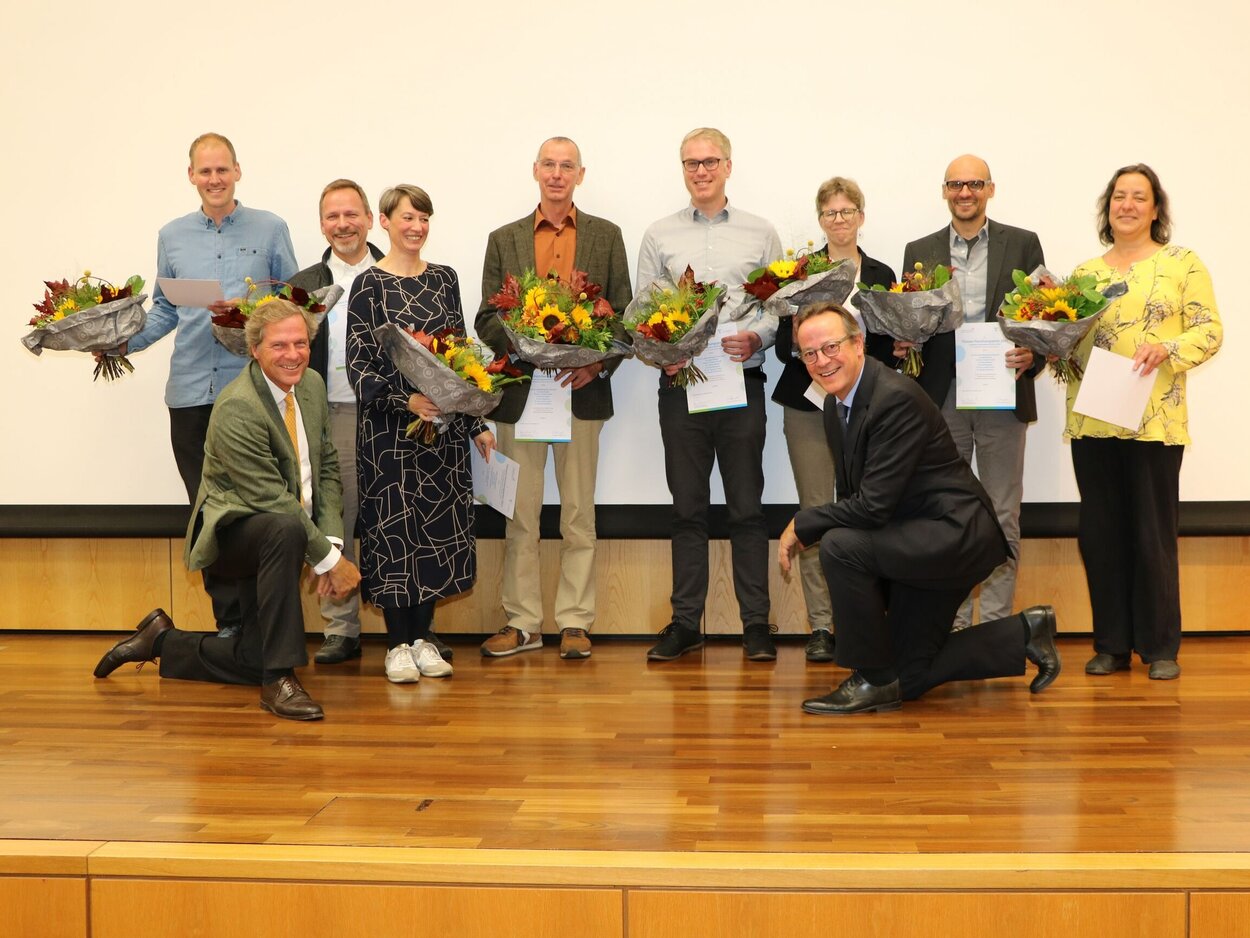The Corona pandemic had prevented an earlier prize-giving ceremony. The Thünen Research Prizes are awarded every two years for an outstanding science-oriented achievement and for excellent target group-oriented work addressed to users in politics or society.
The Thünen Research Prize for an outstanding science-oriented achievement was awarded to Dr Niels Müller, PD Dr Birgit Kersten and PD Dr Matthias Fladung from the Thünen Institute of Forest Genetics. Together with co-authors, they published a groundbreaking paper in the journal "Nature Plants" on the genetic and molecular basis of sex determination in poplars. The results improve our understanding of the biology of plants and their evolutionary history; additionally, they are also valuable for practical applications, for example plant breeding.
Original paper: Müller, N.A., Kersten, B. et al. A single gene underlies the dynamic evolution of poplar sex determination. Nat. Plants 6, 630-637 (2020). https://doi.org/10.1038/s41477-020-0672-9.
The Thünen Research Prize for excellent target group-oriented work was shared this time. One part of the prize was awarded to Prof Dr Peter Weingarten, Dr Stefan Becker, Prof Dr Christian Hundt, Dr Patrick Küpper, Dr Anne Margarian, Dr Jan Cornelius Peters and Dr Annett Steinführer for their publication "Ländliche Räume" (Rural Areas) as issue 343 of the series "Informationen zur politischen Bildung" (Information on Political Education). The booklet, published by the Federal Agency for Civic Education, has a print run of 420,00 copies and is often used as teaching material in schools. The Thünen team wanted to reach young people in particular with this booklet and give them a realistic, differentiated impression of rural areas and their diversity – free of commonly used clichés.
The 68-page booklet "Ländliche Räume" of the series "Informationen zur politischen Bildung" is available free of charge as a print version and as a PDF download at https://www.bpb.de/312730.
The second part of the prize was awarded to a working group from the Thünen President's Office and the Thünen Institute for Baltic Sea Fisheries: Nadine Kraft, Dr Patrick Polte, Annemarie Schütz and Dr Christopher Zimmermann received it for their interactive Pageflow reportage "Herring Trapped in Climate Change". In addition to the underlying scientific work, the innovative format of a multimedia reportage was honoured, with which new user groups (especially the younger, internet-affine public) are to be reached. The report answers the question why the production of young herring in the western Baltic Sea has largely ceased. After years of targeted research, it was possible to prove for the first time what massive effects climate change can have on a regional coastal fish stock.
The Pageflow report "Herring Trapped in Climate Change" is available on the website of the Thünen Institute.
The Thünen Research Prizes are sponsored by the Society of Friends of the Thünen Institute (Gesellschaft der Freunde des Thünen-Instituts; GdF).






